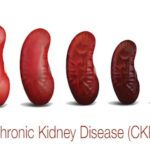Author: Dr. Swati Raju, Hepatologist & Liver Transplant Physician,Fortis Hospital, Vadapalani
India
healthysoch
New Delhi, April 18, 2022:
 The liver is one of the most complex organs in the human body, with over 500 functions. Some of its salient functions include filtering out blood toxins, storing energy, synthesizing hormones and proteins, and regulating cholesterol and blood sugar. It is important to know the facts to ensure that you are living the healthiest lifestyle for your liver. There are so many misconceptions about liver disease and liver health. Read on to know the myths about liver disease and find out why we are busting them!
The liver is one of the most complex organs in the human body, with over 500 functions. Some of its salient functions include filtering out blood toxins, storing energy, synthesizing hormones and proteins, and regulating cholesterol and blood sugar. It is important to know the facts to ensure that you are living the healthiest lifestyle for your liver. There are so many misconceptions about liver disease and liver health. Read on to know the myths about liver disease and find out why we are busting them!
Fatty Liver only affects obese people
FACT: Non-Alcoholic Fatty Liver Disease (NAFLD) is an emerging, major health concern affecting both developed and developing countries alike. In India there has been a paradigm shift in the dynamics of liver cirrhosis with over 10 lakh new cases identified every year. It is becoming more widespread among young people. Along with Obesity, there is a genetic predisposition to developing NAFLD. Hence anyone can develop NAFLD. It can signal a wide range of metabolic problems including heart disease, high BP, Diabetes, Renal disease, Sleep apnea and more as well as an increased chance of cirrhosis and liver cancer.
Fatty liver is irreversible
FACT: Fatty liver grading is done with a Fibroscan which detects the amount of fat present in the liver. Early stages of fatty liver are reversible. Alcohol related fatty liver can be reversed if the person stops drinking. This is because, liver has a unique and remarkable ability to self heal. Helping the liver bounce back and return to an optimal state of health involves certain lifestyle modifications like weight reduction, regular exercise, healthy diet, control of blood sugar and cholesterol. Healthy diet must include plenty of fresh fruits and green vegetables, food high in fibre and whole grains which can make a big difference in reversing the liver damage. Coffee can also be beneficial for the liver as long as sugar is not added and the quantity is limited to 2-3 cups per day.
Alcohol-free weekdays means you can binge on weekends.
FACT: General recommendations suggest no more than 7 drinks per week for women with a healthy liver and 14 drinks per week for men with healthy liver. However, doctors are concerned about levels of binge drinking, particularly among youngsters, who consume large qualities of alcohol in a very short space of your time.
Only alcohol damages liver
FACT: Indeed, alcohol does damage the liver, however, there are other ways a liver can sustain damage. An unhealthy diet, uncontrolled diabetes, obesity, certain drugs and toxins, viral hepatitis (Hepatitis A,B,C and E) and autoimmune disorders are all major causes of liver disease.
I only take occasional alcohol, so I cannot get liver disease.
FACT: Alcohol is a direct hepatotoxic agent and those who have pre-existing liver diseases are more prone to the toxic effects of alcohol. A person who consumes alcohol regularly and has had any type of hepatitis faces a higher chance of developing further liver problems. As alcohol is broken down in the liver, several potentially dangerous by-products are generated which contribute to liver damage. Each time the liver filters alcohol, some of the liver cells die. Although the liver is capable of regenerating itself, prolonged alcohol abuse over years can reduce its ability to regenerate.
I don’t have any symptoms so there is no way I could have cirrhosis
FACT: Liver disease can vary from a simple fatty liver to liver scarring and fibrosis (cirrhosis) to end stage liver failure. Fatty liver disease can be slowly progressive or non progressive. It is possible to have cirrhosis of the liver and not know it. Many patients who have cirrhosis still have enough liver function to support their body’s routine functions and have no symptoms. Fatigue is a common symptom of cirrhosis, but feeling tired can be caused by many things. It’s only when liver dysfunction or failure sets in that symptoms such as yellowing of the skin or eyes, confusion, fluid build-up in your belly, leg swelling and bleeding develop. Those with advanced fibrosis are less likely to improve and are at risk for further liver function deterioration. Those with NAFLD also have a higher risk of heart disease. The only way to catch the disease early is by doing regular health check-ups which include blood tests and abdomen scans.
I might have cirrhosis, but the liver will regenerate and heal itself naturally
FACT: the liver is a highly regenerative organ but only if it is healthy enough to do so without having extensive scar tissue. Once cirrhosis is present, the regeneration capacity is limited and the disease can only kept stable and not be reversed to its normal state.
A diagnosis of cirrhosis means a liver transplant will be needed.
FACT: The liver can still perform all the routine functions for a long time even after becoming cirrhotic or shrunken. However, having cirrhosis means there is a higher risk of developing end stage liver failure and liver cancer. If the symptoms are not adequately controlled by medical therapy or if there is advanced liver failure or early liver cancer, a liver transplant may be needed.
You probably don’t spend a lot of time thinking about your liver. It doesn’t growl like your stomach, wheeze like your lungs or itch like your skin. It goes along quietly doing its job: cleaning toxins out of your blood; making bile for digestion; metabolizing proteins, carbohydrates and fats; and hundreds of other essential activities. When your liver is in trouble, you can’t ignore it.
healthysoch







